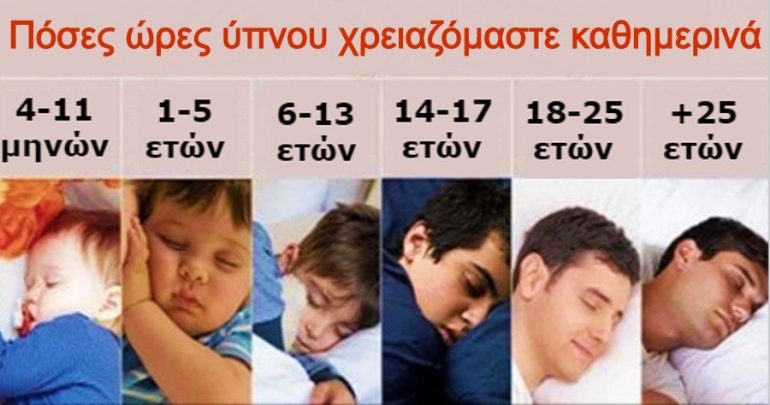The duration of sleep depends on our age. Naturally, younger ages need more sleep to grow than an adult.
Our health and development are significantly affected by our daily sleep and experts advise that we should all follow certain recommendations regarding its duration.
The American Sleep Foundation recommends sleep duration based on age, and the number of hours we need to sleep determines whether we have enough energy during the day, optimal health, and mental clarity.
Sleep duration: Stress and modern technology cause sleep problems
Sleep problems can be the result of various factors and one of the main ones is stress and modern technology.
Stress stimulates the production of cortisol, the "stress hormone". At high levels, this hormone causes restless sleep, illness, and discomfort. On the other hand, the light emitted by electronic devices interferes with the brain's ability to release melatonin, as the body produces this hormone in the dark.
Sleep duration: Sleep problems cause health problems
Sleep difficulties lead to physical fatigue, difficulty thinking clearly, making decisions and concentrating and can lead to loss of appetite. Sleep problems have been found to be directly linked to various health problems.
Sleep less than 5 hours affects heart health, while less than 7 hours leads to weight gain, diabetes, and obesity. Make sure you get enough sleep to avoid health problems.
Duration of sleep: Necessary hours, depending on the stages of development
Charles Czeisler, a professor at Harvard University, and a team of experts conducted a study, including several studies from 2004-2014, to find out the hours of sleep needed and the effects of sleep on health.
According to the various stages of development, they drew the following conclusions:
Newborns (0 to 3 months): 14 to 17 hours.
Babies (4 to 11 months): 12 to 15 hours.
Infants (1-2 years): 11 to 14 hours.
Preschool age (3-5 years): 10 to 13 hours.
School age (6-13 years): 9 to 11 hours.
Adolescents (14 to 17): 8 to 10 hours.
Young people (18-25 years old): 7 to 9 hours.
Adults (26-64 years old): 7 to 9 hours.
Elderly (over 65 years): 7 to 8 hours.
However, keep in mind that each person needs different hours of rest and these recommendations are approximate. However, it is a fact that lack of sleep carries serious health risks for people of all ages.
via
